
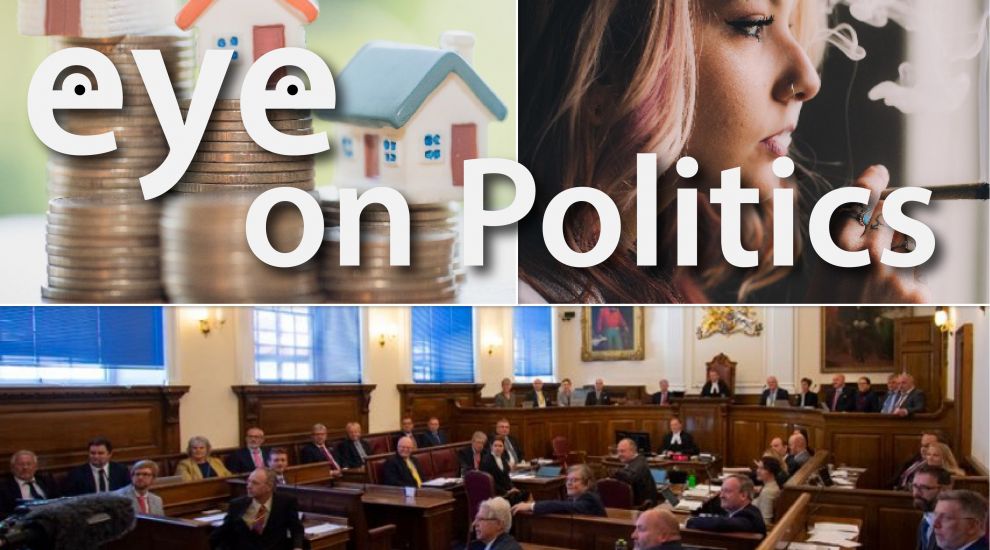

Welcome to EYE ON POLITICS from Express. We dig deeper behind the headlines to help you make sense of the goings-on in Guernsey politics. Including taking a closer look at the agenda for meetings of the States’ Assembly.
Here’s your EYE ON POLITICS digest for this week's States’ meeting...
States' meetings normally start on Wednesdays and the Assembly works its way through policy letters and proposals submitted by its dozen or so standing committees.
Recently, it has become fashionable to meet, once a year, on a Tuesday, potentially for a four-day meeting, at which regular committee business as well as statements from and questions to committee presidents are set aside in favour of a wide-ranging debate about the States' priorities - or, if deputies choose to be less disciplined, about anything and everything they are doing, or in some cases not doing, across any area of government. This is the meeting which starts tomorrow.

Pictured: At their meeting this week, the States will decide priorities for the rest of their term, separating the essential from the desirable.
The annual meeting to discuss what is currently known as the Government Work Plan is meant to have its own dedicated week in the States' calendar. This year, it was meant to be two weeks ago. But it had to be postponed when the senior committee, Policy & Resources, despite having a year's notice of the date, failed to publish the draft Work Plan on time.
'Currently known as' because this document and process - which is meant to sit at the heart of policy planning across the States - has been through multiple identities over the past 20 years: Policy & Resource Planning Report, then Policy & Resource Plan, then Government Business Plan, then States' Strategic Plan, then Government Service Plan, then Policy & Resource Plan (again) and now Government Work Plan.
Constantly altering its title has increasingly created a sense of emperor's new clothes. It's a bit like that old quote about poverty: "I used to think I was poor. Then they told me I wasn't poor; I was needy. Then they told me it was self-defeating to think of myself as needy; I was deprived. Then they told me under-privileged was overused; I was disadvantaged. I still don't have a dime, but I have a great vocabulary."
Nevertheless, the politicians landed with leading this work can always be relied upon to assure the Assembly and the island that this time it will be different and that they have hit upon the elixir of policy planning despite lots of evidence to the contrary, including disregarding the way it is done almost everywhere else in the world. In this Assembly, that task falls to Deputy Peter Ferbrache and, even more so, his Vice President at Policy & Resources, Deputy Heidi Soulsby. In fairness to them, in the absence of serious political parties and in an Assembly more divided and fractious than any other, they have their work cut out and are making a spirited fist of it.
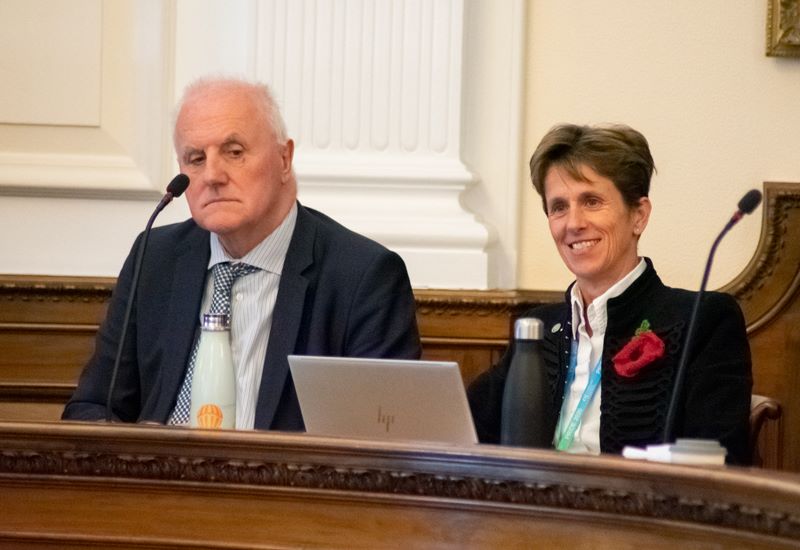
Pictured: Deputy Peter Ferbrache, President of the Policy & Resources Committee, and Deputy Heidi Soulsby, the Committee's Vice President, are the leading figures in the development of the States' Work Plan this term.
The Work Plan contains so much material across so many different areas of States' activity that even those deputies who have read it - which will be the vast majority, but alas probably not all - will find it hard to make a relevant and coherent contribution in the one speech each of them gets in general debate. This means most of the action will come during debate on 12 amendments, each of which will be discussed and voted on separately.
If there is one issue which will dominate debate, it is housing. The Policy & Resources Committee's draft Work Plan states: "The island's housing needs and the increasing cost of living are the two most pressing and immediate domestic pressures which the States must tackle."
Since it was published, Deputy Ferbrache, has been characteristically colourful and dramatic in his choice of words, saying "we have taken some important steps, but we must do more, quickly" and then, when pressed further, labelling the States' record on housing "disgraceful".
If he was trying to focus his colleagues' minds on what has developed into one of the island's periodic housing crises, it worked, as housing accounts for half of the amendments they have submitted for this week's debate.

Pictured: The average cost of a house in Guernsey reached £573,000 in the first quarter of this year - around 16 times the average earnings of a single person.
The island's current housing challenges have not emerged overnight, but there is general consensus that they are now more serious than at any time in the past two decades. In simple terms, too much demand is chasing too little supply, and so getting onto the housing ladder often remains out of touch or requires paying exorbitant prices for the wrong type of property. States' members understand the seriousness of this problem and would love nothing more than to alleviate it. Expect a few evidential and many more anecdotal speeches on the issue this week.
Deputy Ferbrache also said recently that "there is no magic wand" to resolve the housing crisis. The proposals before the States this week demonstrate that in spades. Though perhaps not spades in the ground, as it were, which might be the only viable way to ease pressure in the market even a little.
Deputy Ferbrache himself is involved in two housing-related amendments. One is an attempt to provide developers with more flexibility over the controversial planning policy GP11, which requires housing developments above a certain size to include affordable or social housing. This could be academic since there have been no GP11 developments since the policy was introduced more than five years ago, but Deputy Ferbrache and his seconder, Deputy Victoria Oliver, will doubtless argue that is why it needs to be made more flexible.
The success of this government will be defined by action on Housing. I have an Amendment to the GWP that will be countersigned by Deputy Ferbrache that will instruct government to produce an Housing Action Plan by the end of the year. The game is up, we need to move.
— tothevale (@tothevale) June 10, 2022
Pictured: Deputy Neil Inder meant business when he tweeted about an amendment he was then drafting.
The other amendment involving Deputy Ferbrache, which is proposed by Deputy Neil Inder, was heavily promoted. It would apparently deal with sites, funding and timelines. In fact, when published, the amendment turned out to be rather more modest, merely requiring the Policy & Resources Committee to publish at some point in the next six months a list of States-owned sites which could be used for new housing developments.
Deputy Inder is relying on a belief that the Committee wants to do something much more substantial for housing and will use his amendment as a platform to do it.
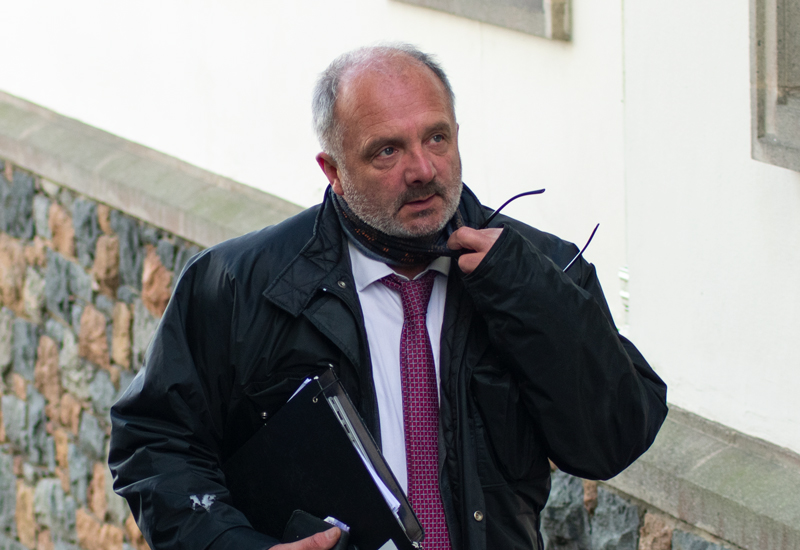
Pictured: Deputy Neil Inder wants the States to give the Policy & Resources Committee six months to publish a list of sites owned by the States which could be used for housing developments.
Deputies Peter Roffey and Lindsay de Sausmarez have submitted arguably the most material of the amendments on housing. If a majority of deputies do something they don't usually and back an idea from Deputy Roffey, future developments built by the Guernsey Housing Association may have to include properties which would be sold at 25% discount to people struggling to get on the housing ladder. Purchasers would pay no rent because they would be owner-occupiers with complete freehold ownership of their property, but they could not sell the property for more than 75% of its market value. This sort of scheme could genuinely improve housing prospects for some people. Its main drawback is likely to be not the idea itself but its inevitably limited application.
Other housing-related amendments include one from Deputies David De Lisle and John Gollop to direct developments to brown rather than green fields and one from Deputies Oliver and Mark Helyar to agree to something which was agreed previously about developers' social housing obligations.

Pictured: Deputies Peter Roffey and Lindsay de Sausmarez want States' backing for a scheme they say will "promote home ownership".
Deputies writing amendments can perhaps be forgiven their limitations. This is the original proposal from the Policy & Resources Committee which they are trying to amend: "...to evaluate and implement actions to address private housing market capacity and affordability; evaluate and implement actions to address key working housing capacity and affordability; and progress proposals to the States by December 2022 on housing need and on management of States’ housing stock." Inspirational stuff, eh?
After housing, cannabis will probably be the next most high-profile issue in the States this week. Express has provided extensive coverage of the various options in front of the States. Essentially, they are: back the Committee for Health & Social Care and move towards a full review of the legal status of cannabis, which would invariably result in a debate sooner rather than later on whether to legalise or decriminalise, or back the Committee for Home Affairs and rule out legalisation or decriminalisation - or at least kick the weed into the weeds, as it were.
Two deputies - Andrew Taylor and David Mahoney - want to take away the choice currently facing deputies between a review of public health laws and a review of cannabis laws and instead completely remove the option of voting for a review of cannabis laws. Debate on their amendment in particular - and on cannabis generally - could provide the most heated moments of the meeting.
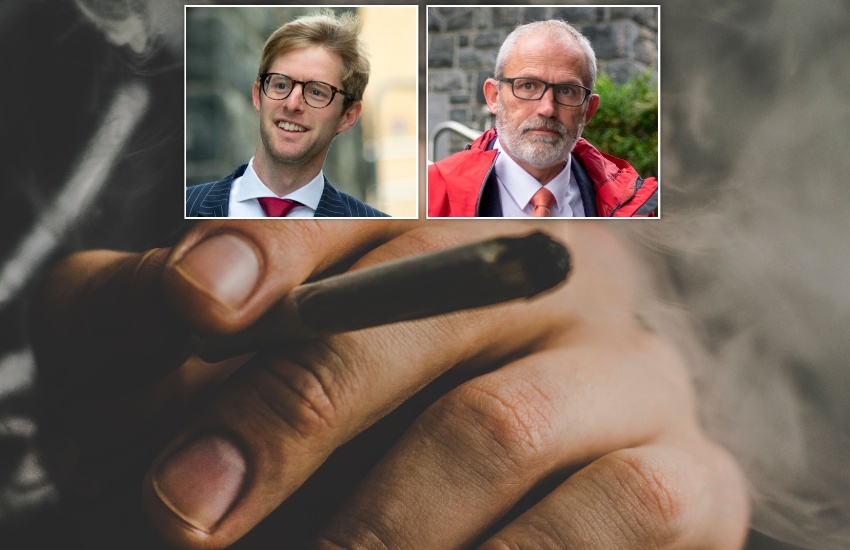
Pictured: Deputies Andrew Taylor (left) and David Mahoney are making a pre-emptive strike to avoid a vote which would require deputies to make a choice between a review of public health legislation and a review of the legal status of cannabis.
There will be more unity when the States debate their 2021 accounts, partly because they are a factual account of the past and it really doesn't matter whether deputies like them or not and partly because overall they reveal good news. Income was higher and expenditure was lower by a total of £61m and investment income was £28m better than forecast.
Deputies agreed last summer to spend an estimated £600m on capital projects during the current States' term until June 2025. They also agreed to borrow up to £200m to help pay for the projects, but the Policy & Resources Committee now says they can be funded from previous surpluses.
This is perhaps just as well as the current States show little sign of wanting to tighten their belts on what seem to have become rather high spending habits. The draft Work Plan includes a package of new items of expenditure which total just over £34m over the period 2022-25. Education and training alone is set for a cash boost of around £9.4m, most of it heading for the Committee for Education, Sport & Culture.

Pictured: Deputies Andrea Dudley-Owen and Bob Murray, President and Vice-President respectively of the Committee for Education, Sport & Culture, are hoping to secure a cash injection for the Committee of several million pounds.
The week of the debate on the Work Plan is usually free of other distractions. But this year, as a result of the tardiness submitting the Plan, what they call an 'ordinary meeting' will follow at the conclusion of the Work Plan debate. Business is very light, though. There will be update statements from the President of the States' Trading Supervisory Board and the President of the Transport Licensing Authority, the States' least active committee - indeed it's almost moribund. And some relatively minor tidying up to allow further progress of changes already substantially agreed.
At the end of each States' meeting, the Assembly decides its future schedule of business. This time, that will include agreeing the dates of debates on minimum wage rates, the reinstatement of a reciprocal health agreement and Deputy Steve Falla's requête to make it harder for States' committees to build residential accommodation, including housing for key workers, on agricultural fields.
The next States' meeting, the last before the summer adjournment, may also feature the return of Deputy Christopher Le Tissier. On 14 July last year, he was suspended from the States for one year after he was caught anonymously posting various unedifying comments on social media. His suspension ends part of the way through the next States' meeting - so it may be that he has to sit out the first day before making his long-awaited, if not necessarily triumphant, return on the second day.
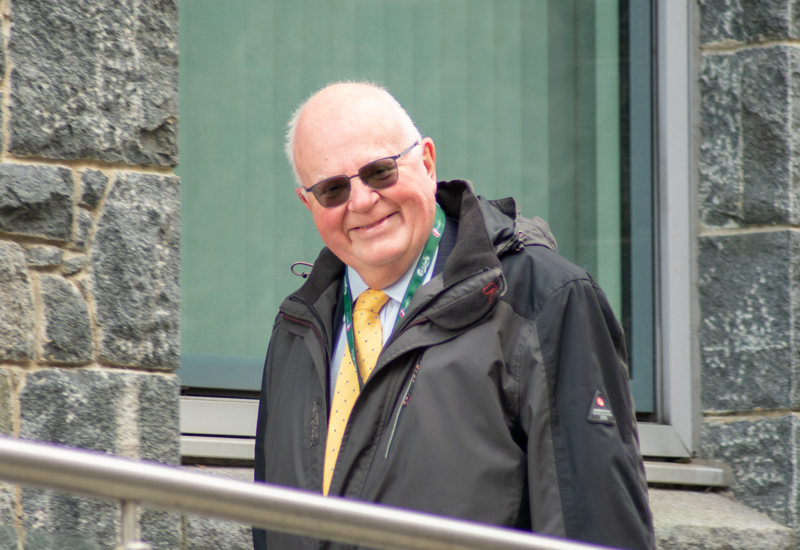
Pictured: This week's States' meeting is likely to be the last for which Deputy Christopher Le Tissier will be suspended.
Proposed discount housing scheme "promotes home ownership"
PODCAST: P&R chief wants to inject "hope and aspiration into housing"
States' housing record "disgraceful - but there is no magic wand"
P&R says States "must tackle" housing costs and cost of living
Average house price rises by more than 12% in a year
Requête on way if deputies prevent vote on cannabis review this week
Deputies' cannabis arguments are "the biggest crock of nonsense"
Deputies bid to block cannabis vote
Cannabis law review moves closer - and States to debate GP costs
Drugs laws under review - but legalisation is off the agenda
Capital projects can now be funded without borrowing
Education awaits £9m cash boost
Comments
Comments on this story express the views of the commentator only, not Bailiwick Publishing. We are unable to guarantee the accuracy of any of those comments.